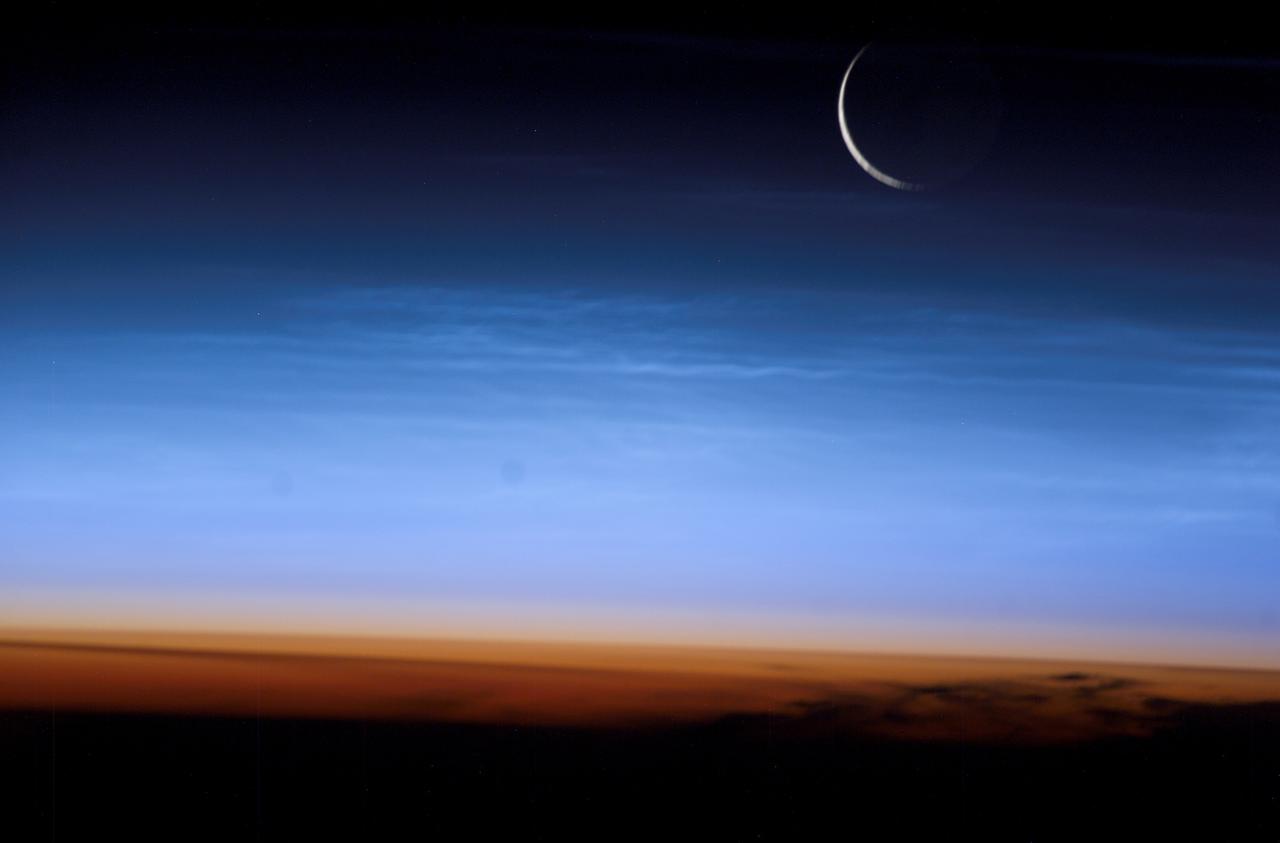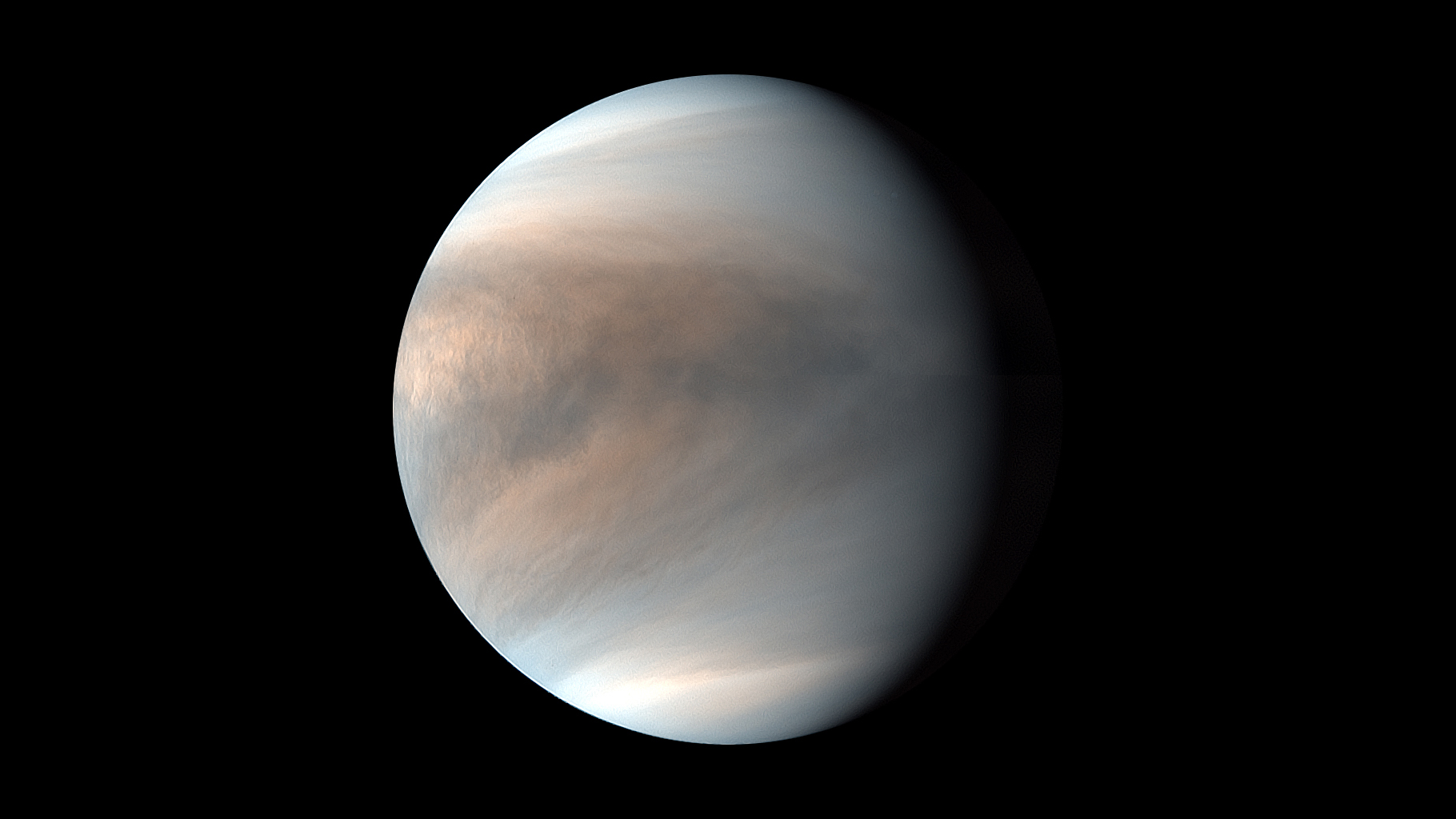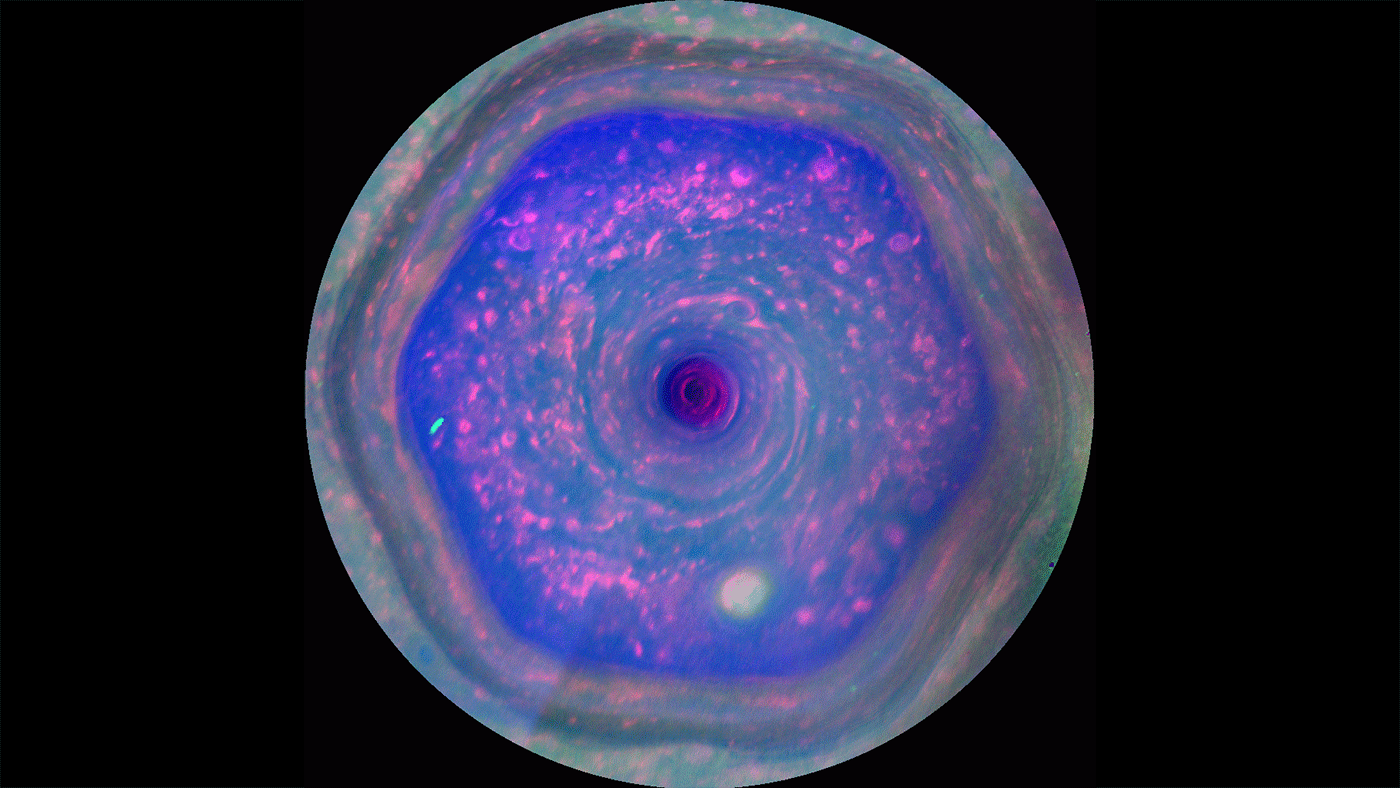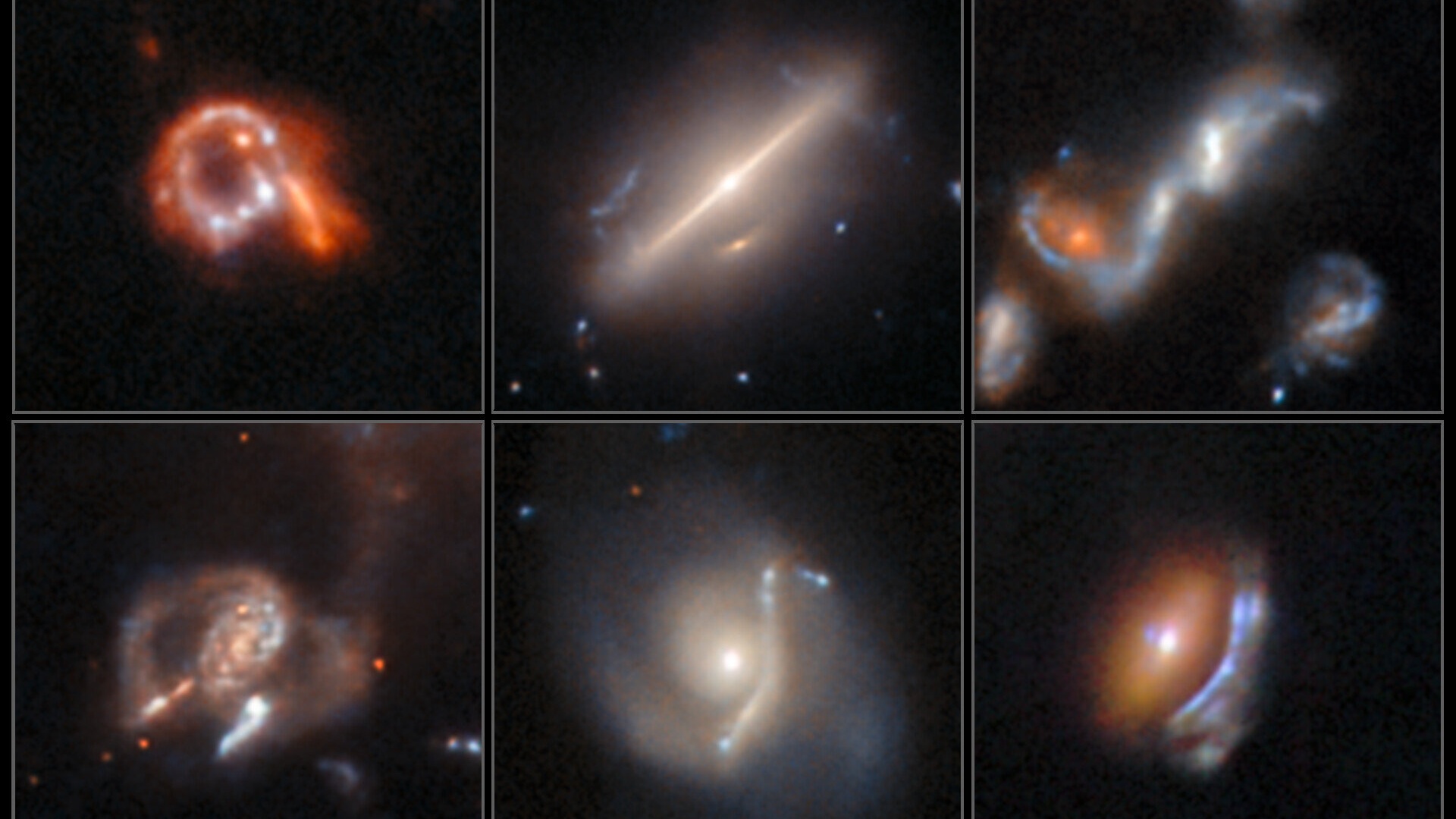
What makes Earth's atmosphere so special?
Other worlds in the solar system have air, too.

Paul M. Sutter is an astrophysicist at SUNY Stony Brook and the Flatiron Institute, host of Ask a Spaceman and Space Radio, and author of How to Die in Space.
We Earthlings think we're oh-so-special. The abundance of oxygen in our atmosphere and the presence of liquid water on the surface of our planet makes our "Pale Blue Dot" stand out in contrast to the other planets in the solar system — a unique and fragile home for life.
But for all the biological activity on our homeworld, we're not the only interesting planet orbiting the sun. There are some other equally amazing places in the solar system. Here is just a sampling.
Who asked for Venus?
Of all the rocky worlds in the solar system, Venus takes the cake — and then has some more. Its atmosphere is chokingly, toxically thick. At the surface, the air is almost a hundred times denser than it is on Earth, which makes "sea level" on Venus the pressure equivalent of an ear-crunching 3,000 feet (900 meters) under the water.
The miles upon relentless miles of air above Venus trap heat, a runaway greenhouse effect in full bloom. It makes the surface so hot that it's warmer there than on Mercury, despite the latter planet sitting closer to the sun.
Want to melt some lead? Just leave a lead bar sitting around on the surface of Venus, and wait. The atmosphere will do the rest of the work.
Related: Living on planet Venus: Why it would be hard (infographic)
Breaking space news, the latest updates on rocket launches, skywatching events and more!

To make this hellish nightmare of a planet even worse (because why not), Venus' atmosphere hosts a substantial amount of sulfuric acid. The acid forms clouds in the upper atmosphere, and below that a pea-soup foggy haze, before condensing to produce acid rain.
But that acid rain doesn't even make it to the surface: the temperatures and pressures quickly evaporate it before it touches the ground.
Is Venus nasty? You bet. Is it special? Well, it's certainly one-of-a-kind.
Saturn's love for geometry

So, Saturn has a hexagon on its north pole. No joke, we have pictures of it and everything. A real, legit geometric shape, staring at us like some sort of cosmic joke.
But it's no joke, just physics. The north pole of Saturn is dominated by a giant vortex-like hurricane, as winds whip around the planet at hundreds of miles per hour. But as you migrate farther south, the winds fade down to more sedate speeds.
At a particular latitude, those winds become unstable, as faster-moving winds rub against their slower-moving cousins. The turbulent motion creates smaller, semi-permanent hurricanes, strung like beads on a necklace in Saturn's northern hemisphere. These hurricanes shape and sculpt the jet stream above them, forcing the winds to take on a distinctly six-sided appearance.
So, if you're a fan of geometry, there's no better planet than Saturn. Nobody else in our solar system sports such an arrangement of storms, making the ringed world an absolute standout.
A surprise from Titan
The hexagon isn't the only surprise to be found in the Saturnian system. Saturn's largest moon, Titan, is shrouded in dense, impenetrable fog.
And that fog hides a wonderful secret.
Titan's atmosphere is thick —by far, the thickest of any moon in the solar system, and even 50% thicker than the Earth's atmosphere. It's mostly nitrogen (just like the air of Earth) but also has a fair bit of methane and ethane. That gives Titan its characteristic yellow, ugly hue. And just above the surface, the methane bonds with hydrogen, sprinkling a few clouds in the smog.
And sometimes that methane forms droplets and falls to the ground, where it pools and collects to create streams, rivers, lakes, and even oceans of methane. And if it gets a little toasty, some of that methane evaporates back into the atmosphere, starting the cycle anew.
A complete cycle, akin to the water cycle on Earth, but at a temperature a few hundred degrees below zero. And with methane.
Besides the Earth itself, Titan is the only world in the solar system to boast liquids on its surface. Methane seas. Methane rain. A landscape dominated by liquid hydrocarbons. Life as we know it requires water, but it's not impossible for some form of life to arise in this methane oasis at the edge of the solar system.
And any place that could potentially host life is most certainly special.
Learn more by listening to the episode "AaS! 126: What's the wildest weather in the solar system?" on the Ask A Spaceman podcast, available on iTunes and on the Web at http://www.askaspaceman.com. Thanks to Saul C. for the questions that led to this piece! Ask your own question on Twitter using #AskASpaceman or by following Paul on Twitter @PaulMattSutter and facebook.com/PaulMattSutter.

Paul M. Sutter is a cosmologist at Johns Hopkins University, host of Ask a Spaceman, and author of How to Die in Space.

